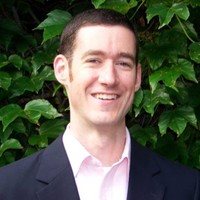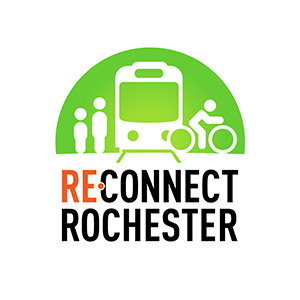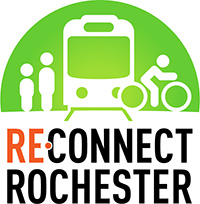
Guest blog by Doug Kelley, Associate Professor, University of Rochester.
In my first few long bike rides this spring, I’ve been bowled over by the beautiful views. And it’s not like I’m visiting new places. I pedaled these same routes last summer, when I first came to Copenhagen for a yearlong sabbatical and was eager to explore. But never were the vistas like this! Now, the hills and buildings of Sweden, 10 miles across the waters of Øresund, are not just blurry shapes, but clear and distinct and colorful. Now, looking southwest from the gorgeous seaside bike path in Naturpark Amager, I can see the towns of Køge and Strøby across the bay, nearly 20 miles distant and never visible before. First noticing these fantastic vistas, I gave thanks for the end of the dark and rainy Danish winter. Then I remembered that visibility was never this good last August or September. Something else must be happening. That something is probably covid-19.
The pandemic is causing profound suffering worldwide, through death and sickness, through separation and hardship. I would not wish it upon anyone. The pandemic is also giving humankind a unique opportunity to see — firsthand — what our lives look like when motor traffic is significantly reduced. Few are driving, which means less air pollution, and we can see the improvement with our own eyes. It’s visible all over, not just on my weekend bike routes but in places like London, Delhi, Wuhan, and Los Angeles. My wife tells me her lungs feel better now as she strolls along formerly-busy roads. Back home, nitrogen dioxide emissions in Rochester are down 30%. NASA data shows similar trends all over the world. Social media is awash in before-and-after photos picturing how much better our views have gotten thanks to reduced motor traffic. Mount Kenya is spectacular.
“The pandemic is giving humankind a unique opportunity to see — firsthand — what our lives look like when motor traffic is significantly reduced.“
With those views come other important benefits. The micron-scale airborne particles that mar our vistas also wreak havoc on our health. They are the most harmful form of air pollution, penetrating deep into the lungs and blood to cause heart attacks and respiratory disease. One study found that for particles with diameters smaller than 2.5 microns, every airborne concentration decrease of 10 micrograms per cubic meter comes with a 36% decrease in lung cancer. Another study estimated that reducing particle pollution by just 1 microgram per cubic meter would prevent 34,000 premature deaths per year in the United States. So ironically, reduced motor traffic due to the pandemic may actually save as many lives as are lost to covid-19. That’s a speculation, but given what we know, entirely plausible.
Moreover, the health benefits of reduced traffic tend to be greatest for the very people who are suffering most in the covid-19 pandemic. Air pollution links to higher covid-19 death rates and almost certainly plays a role in black Americans dying of covid-19 at higher rates than white Americans. Even aside from the virus, low-income people suffer disproportionately from respiratory diseases, including asthma. Substantially reduced particle pollution is good for everybody — and especially good for those with the most urgent health needs.
“Substantially reduced particle pollution is good for everybody — and especially good for those with the most urgent health needs.“
Reducing motor traffic also comes with the obvious benefits of reducing carbon emissions and slowing climate change. The International Energy Agency estimates that greenhouse gas emissions will be 8% lower worldwide in 2020 than in 2019, mainly due to reduced motor traffic and airline travel. Climate change is a long-established scientific fact, and its extreme weather and eerily warm winters are now nearly as evident in firsthand experience as the vistas on my bike rides. A one-year, 8% drop isn’t enough to solve the world’s climate change problem, but it’s a step in the right direction.
“A one-year, 8% drop [in greenhouse gas emissions] isn’t enough to solve the world’s climate change problem, but it’s a step in the right direction.“
Living through this historic moment, when we literally see the good of reduced motor traffic with our own eyes, I can’t help but wonder: What if we hold on to the good, and hold on tight? As social distancing eases and we venture out of our homes more often, what if we do it without so much motor traffic? What if we reboot our economy and jobs and schooling without ruining our own vistas and attacking our own lungs?
“As social distancing eases and we venture out of our homes more often, what if we do it without so much motor traffic?”
The pandemic has taught us that for many jobs and in many cases, we can work from home just fine. The pandemic has taught us that some travel is more trouble than it’s worth. What if, instead of using the pandemic as an excuse for more pollution, we enact laws and regulations that clean our air? What if we go more places by walking and biking and public transportation? What if we build on our momentum? It would mean new thinking about topics like achieving social distancing on buses and trains. It would mean living in a new way. But the lifestyle adjustments involved are far smaller and simpler than the ones we have already achieved, surviving this unprecedented pandemic together.
We can get started right now.
Here are a few ways to build on great work already happening in our region:
- Walk or bike or take the bus on three trips this week — or the next three trips you take, if you’re at home this week — when you might otherwise have used a motor vehicle.
- Contact your county legislator, state assembly member, and state senator to urge them to sign this letter asking Gov. Cuomo to phase out fossil fuels while ramping up renewable energy and energy efficiency — or thank them if they already have.
- Email County Executive Adam Bello to thank him for urging Monroe County to join the state Climate Smart Communities program.
- Email County Legislator and Reconnect Advisor Rachel Barnhart in support of better broadband infrastructure for easier telecommuting.
- Contact RTS to thank them for putting clean, electric buses in their fleet — and urge more.
- Tell your school district you want clean, electric school buses. Email community advocate Kathryn Rygg to learn more.
- While children are out of school during the pandemic, teach them to walk and bike safely (ideas here and here), then link up with Flower City Family Cycling for future rides.
- Take a class on safe cycling from an instructor certified by the League of American Bicyclists.
- Leave a comment thanking the City of Rochester for their Bike Rochester work — and urge more.
- Learn how to Go All Electric with the Rochester People’s Climate Coalition.
- Sign up to help with the next Complete Streets Makeover.
- Donate to Reconnect Rochester!
The benefits would be huge. Cleaner-feeling lungs, fewer respiratory diseases, better quality of life, reduced chance of climate change causing harder times even than the covid-19 pandemic. And big, clear, beautiful vistas. I think we can do it.
There are many more ways to take action. Leave comments below with your own suggestions.
Read more about the Kelley family’s Danish experience in an earlier blog post: Copenhagen transportation: A day in one family’s life.

